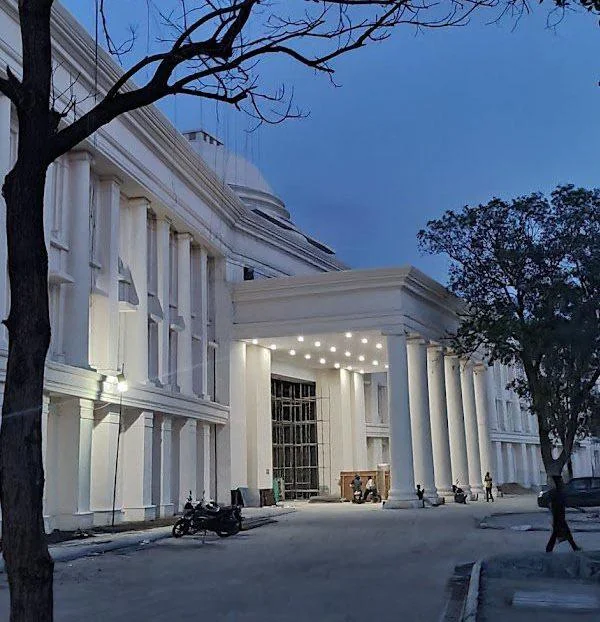MBA Entrance Exams
MBA, or Master of Business Administration, is one of the most sought-after degrees globally, providing a pathway to lucrative career opportunities in various sectors. In India, pursuing an MBA from a reputed institution is considered a significant milestone for many aspiring professionals. However, gaining admission to a top MBA program in India requires clearing competitive entrance exams. These exams serve as a gateway to some of the most esteemed business schools in the country. In this article, we will delve into the top MBA entrance exams in India, outlining their significance, structure, and preparation strategies.
| MBA Entrance Exam 2024 | Last Date to Apply | Exam Date |
|---|---|---|
| CAT 2024 | 3rd Week of September 2024 | 24-Nov-2024 |
| SNAP 2024 | Soon Announced | Soon Announced |
| MAT 2024 | 20-Feb-24 (PBT)5-Mar-24 (CBT)21-Feb-24 (IBT)29-Feb-24 (IBT)5-Mar-24 (IBT) | 25-Feb-24 (PBT)10-Mar-24 (CBT)24-Feb-24 (IBT)3-Mar-24 (IBT)8-Mar-24 (IBT) |
| CMAT 2024 | Soon Announced | Soon Announced |
| IIFT 2024 | Admission through CAT | Admission through CAT |
| XAT 2024 | 10-Dec-2023 | 07-Jan-2024 |
| ATMA 2024 | 10-Feb-2024 | 18-Feb-2024 |
| OJEE 2024 | 15-Mar-2024 | 06-May to 10-May-2024 |
| IBSAT 2024 | Soon Announced | Soon Announced |
| TISSNET 2024 | Admission through CUET PG | Admission through CUET PG |
| TANCET 2024 | 07-Feb-2024 | 09-Mar-2024 |
| TSICET 2024 | Soon Announced | Soon Announced |
| KMAT 2024 | Soon Announced | Soon Announced |
| MAH-CET 2024 | Soon Announced | 09-Mar-2024 and 10-Mar-2024 |
| NMAT By GMAC 2024 | Soon Announced | Soon Announced |
| MICAT 2024 | 20-Nov-2023 (MICAT I)16-Jan-2024 (MICAT II) | 02-Dec-2023 (MICAT I)27-Jan-2024 (MICAT II) |
| KIITEE MBA 2024 | 15-Jan-2024 | 19-Jan-2024 to 21-Jan-2024 |
| APICET 2024 | Soon Announced | Soon Announced |
| Karnataka PGCET 2024 | Soon Announced | Soon Announced |
List of Top MBA Entrance Exams in India
1. Common Admission Test (CAT)
CAT is undeniably the most prestigious MBA entrance exam in India, serving as the gateway to the Indian Institutes of Management (IIMs) and numerous other premier management institutes across the country. Conducted annually by one of the IIMs on a rotational basis, CAT assesses candidates’ aptitude in quantitative ability, verbal ability, data interpretation, and logical reasoning.
The CAT exam typically comprises three sections: Quantitative Ability (QA), Verbal Ability and Reading Comprehension (VARC), and Data Interpretation & Logical Reasoning (DILR). With a duration of 180 minutes, CAT is a computer-based test, employing both multiple-choice and non-multiple-choice questions.
Preparation for CAT demands a rigorous study schedule, encompassing comprehensive coverage of the syllabus, regular practice tests, and mock exams to enhance time management skills and accuracy.
2. Xavier Aptitude Test (XAT)
XAT is conducted by Xavier School of Management (XLRI), Jamshedpur, on behalf of the Xavier Association of Management Institutes (XAMI). Apart from XLRI, several other esteemed B-schools like SPJIMR, IMT, XIMB, and TAPMI also accept XAT scores for admission to their MBA programs.
The XAT exam pattern differs from CAT, comprising sections on Verbal and Logical Ability, Decision Making, Quantitative Ability and Data Interpretation, and General Knowledge. Additionally, XAT includes an essay writing section, assessing candidates’ written communication skills and critical thinking abilities.
Preparation for XAT necessitates a well-rounded approach, focusing on building strong fundamentals, enhancing decision-making skills, and staying updated with current affairs for the General Knowledge section.
3. Management Aptitude Test (MAT)
Conducted by the All India Management Association (AIMA), MAT is a standardized test administered quarterly for admission to MBA and allied programs in various B-schools across India. Unlike CAT and XAT, MAT offers both paper-based and computer-based test options, providing flexibility to candidates.
MAT assesses candidates’ proficiency in Language Comprehension, Mathematical Skills, Data Analysis and Sufficiency, Intelligence and Critical Reasoning, and Indian and Global Environment. Each section comprises 40 questions, with a total of 200 questions to be attempted within 150 minutes.
MAT preparation involves understanding the exam pattern, practicing previous years’ question papers, and focusing on time management to tackle the exam efficiently.
4. Graduate Management Admission Test (GMAT)
While not specific to India, GMAT is widely recognized by Indian B-schools for admission to MBA programs, especially for candidates seeking admission to international business schools. GMAT assesses candidates’ analytical writing, integrated reasoning, quantitative, and verbal skills.
GMAT’s adaptive nature tailors the difficulty level of questions based on candidates’ responses, ensuring a personalized assessment experience. The exam does not follow a fixed pattern, but its syllabus includes topics related to arithmetic, algebra, geometry, grammar, and critical reasoning.
Preparing for GMAT requires a structured study plan, thorough understanding of concepts, and consistent practice through mock tests and sample questions to adapt to the exam’s adaptive format.
5. Symbiosis National Aptitude Test (SNAP)
SNAP is conducted by the Symbiosis International University (SIU) for admission to its MBA programs and other affiliated institutes under the Symbiosis umbrella. SNAP assesses candidates’ analytical and logical reasoning, quantitative aptitude, general English, and general awareness skills.
The exam consists of four sections: General English, Analytical & Logical Reasoning, Quantitative, Data Interpretation & Data Sufficiency, and Current Affairs. SNAP is a computer-based test with a duration of 120 minutes.
Preparation for SNAP entails thorough revision of concepts, regular practice of mock tests, and staying updated with current affairs for the general awareness section.
Conclusion: MBA Entrance Exams in India
In conclusion, securing admission to a top MBA program in India requires diligent preparation and proficiency in the respective entrance exams. While CAT remains the flagship exam for IIMs and other premier B-schools, candidates also have the option to explore other exams like XAT, MAT, GMAT, and SNAP, depending on their preferences and targeted institutions. Regardless of the exam chosen, a focused study approach, consistent practice, and strategic time management are indispensable for success in these competitive MBA entrance exams.






